China: Welcome to the Twenty-first Century
15.01.2020 at 09:54
- Traveling
- 0
Author: Faruk Borić
They say that there are places on the planet that you must see at least once in your life. There are also places where one gladly returns, recognizes the faces of the city from some past times, tries to discern and what is new. I have not been to Beijing for four long years. Is it possible that so much has passed? Is it possible to know Beijing by stopping by, passing by? A fellow journalist told me that it takes three to six months to really get to know the soul of this city. This is probably true. But to love Beijing and to feel it is true is beyond doubt.
Things got better so my third stay in China started and ended in Beijing, with a seven-day trip to Liaoning Province, its capital, Shenyang, and a cool port city on the Bohai Sea, Jinzhou. The seminar for journalists and PRs from countries that signed the Belt and Road Initiative lasted more than 20 days, most of which we spent in the metropolis. Organized by the Training Center of the Chinese International Publishing Group (CIPG), this seminar featured 42 media professionals from 15 countries, from Moldova and Macedonia, through Syria and Lebanon, to Costa Rica, Haiti, Guyana and Tonga, including colleagues from Ethiopia. Uganda, Ghana, Namibia, South Sudan and Cameroon. An impressive set of cultures that combine the profession and the desire to learn something useful about today's China. The hosts did their best with a series of quality lectures on the development of the media and China in general, as well as quality cultural visits, to show us what China was in 1978 at the beginning of the process of opening up to the world and reform, and what it is today.
However, any honest journalist walker knows that it is best to get to know the city if you are walking its streets and meeting ordinary people. This was, after all, the recommendation of one of the lecturers. That is why sports sneakers served a purpose, at least until Beijing's famous wind blew, reminiscent of the Danube baskets with cold and penetration, and when it was time to call it boots.
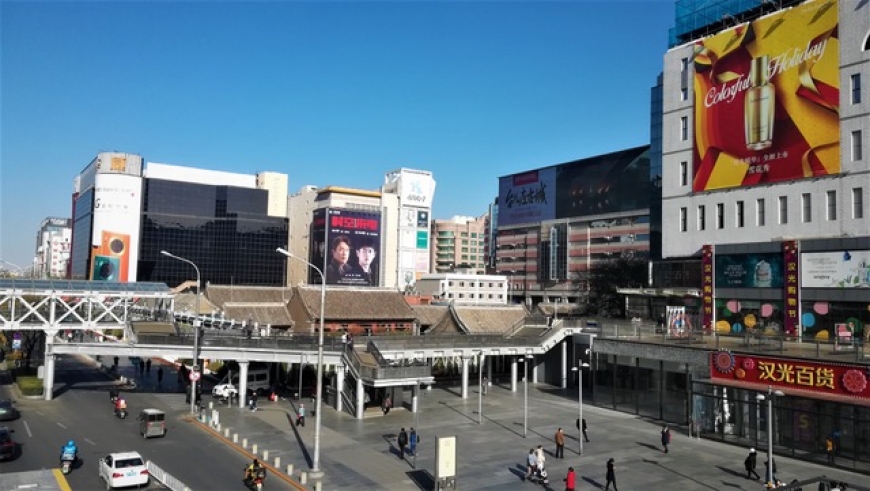
Walking around Beijing is not a very grateful business. It is a city that has an official population of 21.5 million, and unofficially that number is rising by several million more. The city covers an area of just over 16,000 square kilometers, which is just under one third of Bosnia and Herzegovina, or, if you will, about five thousand square kilometers more than Herzegovina. A cursory glance at the position of the hotel in one of the districts reveals that we are not too far from the center of Beijing, which is, of course, Tiananmen, the world's largest square of 63 football stadiums, and the Forbidden City leaning against it. The Forbidden City is a symbol of thousands of years of imperial China, and Tiananmen, on which Mao Zedong proclaimed the People's Republic of China on October 1, 1949, is a symbol of a new, socialist China, which this year marked the seventy years of existence by a series of manifestations at its highest, as evidenced by , among other things, the numerous billboards that Beijing has been framed.
So, the Forbidden City is here, on the cell phone map, for the first day, and this almost springtime sun entices us to move from the western part of the city to the center. Of course, it will turn out to be not quite under your feet. After a one-hour walk, the goal is not even halfway, so I decide to turn around and make a circle around the park at the foot of the Beijing Tower, one of the symbols of Beijing. Many Pekingans enjoy walking the streets and taking pictures along the paths trimmed with golden yellow leaves. This is what, I recall, fascinated me and the first time I stayed in Beijing, wherever you are, on the street that touches the park, in the park in the museum, in the mall or in the subway, you will see people everywhere catching moments of the day. Lots of them. This feeling is sewn into the consciousness and into the subconscious.
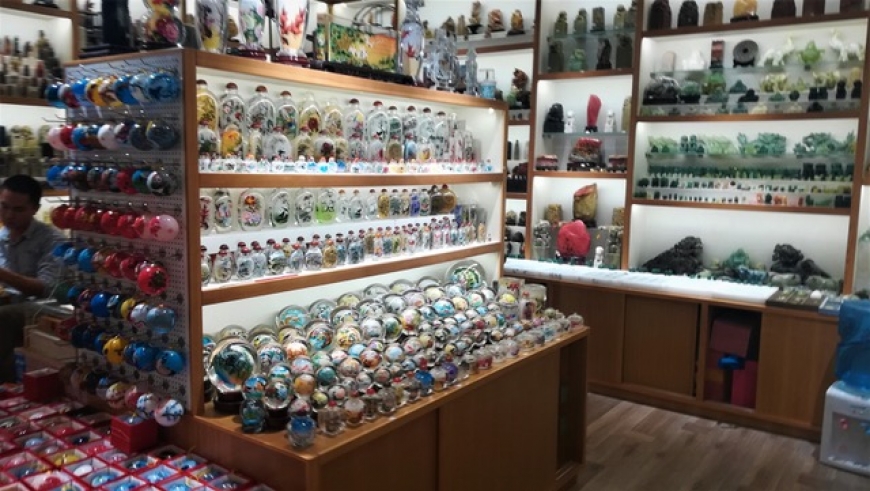
Overall, more than two hours walk around the block, 15 kilometers, and return to the hotel to adjust to another time zone with the introduction of nearby consumer goods stores. This is followed by contact with her homeland, a friend who lives in a strict neighborhood, so close that it would be considered a surprising coincidence in Sarajevo as well. We talk about Sarajevo and Beijing, and arrange - in line with our obligations - city cruises, shopping tours and dinners.
The metro is a bloodbath and a blood stream to every metropolis. The Beijing subway is the cleanest I've seen so far, not only the cleanest but also the most functional. The double-digit number of lines (the Internet says 23, with 394 stops and 669 kilometers of track) are designed to move you and millions of other travelers seamlessly from end to end, saving money and time, as Beijing's crowds, especially when people leave for work or come back from it, they know how to capture a man on the road for several hours. And here, in the Beijing subway, you can see the breath of 21st century China. The purchase of the ticket is computerized, the tickets are paid by mobile phone, more precisely the QR code of the WeChat application, which to the Chinese is much more than a reliable way of communication - among other things, it is therefore a substitute for a wallet. If you have linked your WeChat account to a bank account (Chinese!) Account, it is enough to bring your QR code to a store, market or subway, and in doing so you have fulfilled your consumer duty. When asked by one of the seminar lecturers our young Chinese colleagues in charge of the seminar whether they use the money, the answer comes: "Of course not!". Our thick wallets full of paper and coins are a flat-spot effect here.
Speaking of wallets and subways, Beijing is a safe city to the point that for the first time since I knew about myself in the white world, I did not check every few seconds where my wallet was and move it from the back pocket to the front, then to the inside pocket of my coat, so in the hand, and so on several times. Perhaps part of this is the fact that public space is covered in cameras and little can go unnoticed. It may be down to Confucian cultural code mixed with harsh punishments. Maybe both.
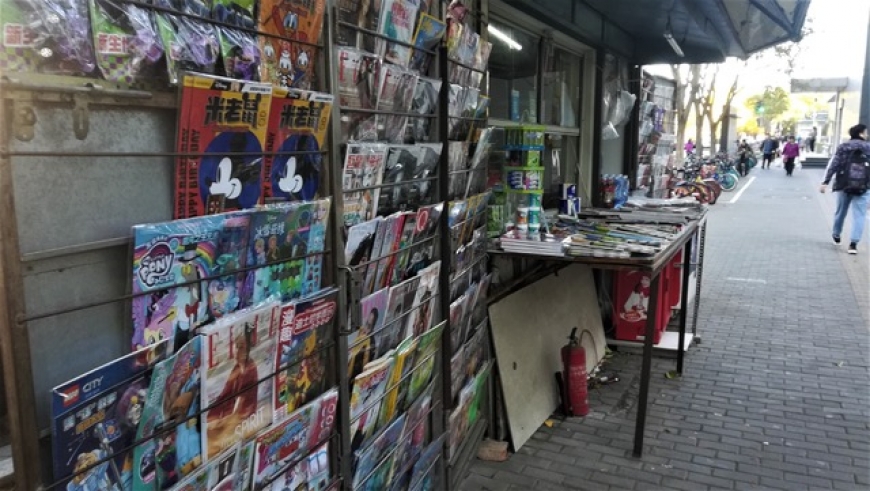
The difference in time zones between Sarajevo and Beijing is seven hours, so when it is 5am in Beijing in Sarajevo, it causes sleep disturbances in the first days and the feeling that, in fact, it is not breakfast and lunch but three times dinner. However, the seminar dynamics are unrelenting and make us fulfill the basic task of which we are here: To become acquainted, as media experts from the countries of the Belt and Road Initiative, with Chinese achievements, especially in the field of media.
This year, again, the People's Republic of China celebrates its 70th anniversary, and the Chinese, who traditionally like to commemorate symbolically significant anniversaries (last year marked 40 years since the start of reforms and inauguration), are putting the development in the discourse of the historical development path. The CCP, the central governing body of which the highest body is the National Congress, is a key role in this seventy-year journey. At the 19th CCP, Secretary General Xi Jinping first introduced the phrase "The thought of socialism with Chinese characteristics in a new era". Xi's Thought was then introduced into the CCP's Constitution, making the incumbent leader the third leader in the Constitution (alongside Mao Zedong and Deng Xiaoping). One part of the thought also applies to Xi's Four Comprehensive Strategies: 1) Comprehensively build a moderately prosperous society, 2) Deepen reform, 3) Implement the rule of law comprehensively, and 4) Strengthen discipline in the Party.
- Before the founding of the People's Republic of China, most people did not have enough food or clothing. 70 years ago, China's average life expectancy was 35 years. Today, not only do they have food and clothing, they are on the path to a prosperous life. Life expectancy has increased to 77, and Chinese now have access to better education, medical care, housing, old-age care and social security benefits - according to an introduction to the October issue of the influential Beijing Review, which is dedicated to commemorating this anniversary, with author Rebeca Toledo recalls that the First Five-Year Plan of 1953 included 156 key projects, all of which were from the heavy industry sector and carried out with the assistance of the Soviet Union, while the last such plan in 2016-20 had 165 key projects that China would of course independently carry out concerning quantum transmission , 5G technology and express trains, the high tech industry.
When it comes to the media, and especially new media, China's indicators are more than impressive. Data from the end of 2016 says that China has 4.8 million registered websites, and official data says that at the end of 2018, that number has grown to 5.33 million. At the end of 2016, there were 731 million Internet users, or 53.2 people in China with Internet access. According to a news release by the Xinhua News Agency, that number had risen to 854 million by June 2019, accounting for 61.2 percent of internet accessibility. What is interesting is that 99.1% of Chinese people access the Internet via mobile. A small sample of this can be seen at every turn in the public space. Interesting is the percentage of what Internet users do online: 96.5 of them use the net to send messages, over 80 percent read the news, close to 75% buy online and not [a smaller percentage pay the bills; and 88.8% and 75.6% respectively saw videos and short videos.
Even the traditional media are not far behind in innovation. Mentioned Xinhua, one of the world's largest agencies, which itself has moved from the media of the red revolution that heralded the arrival of New China (which, by the way, means Xin Hua), to an agency with more than 100 offices worldwide, including Bosnian-Herzegovinian in Sarajevo, and which broadcasts news in addition to Chinese in English, French, Spanish, Russian, Arabic, Portuguese, and this year in Italian. As we tour the agency's museum, which features photos of some of Xinhua's most significant historical events, staff familiarize us with the latest trend in artificial intelligence research in journalism. We look at the screens from which news AI girl and young man read. There are different feelings among colleagues, from the backlash to the delight. "Don't ask for bread or water," I think of the author of this often-spoken sentence, another Faruk Šehic, but also of numerous fellow leaders who, before retirement, could become redundant in the profession. Just as once the calves disappear. And a silent movie.
However, new media and social platforms have gained momentum today. According to data presented to us during the seminar, 82% of users are informed via online media (including social networks), 70% through television, 52% receive news through social media (including messages), printed media is used by 32% of respondents, the same percentage as well as via radio.
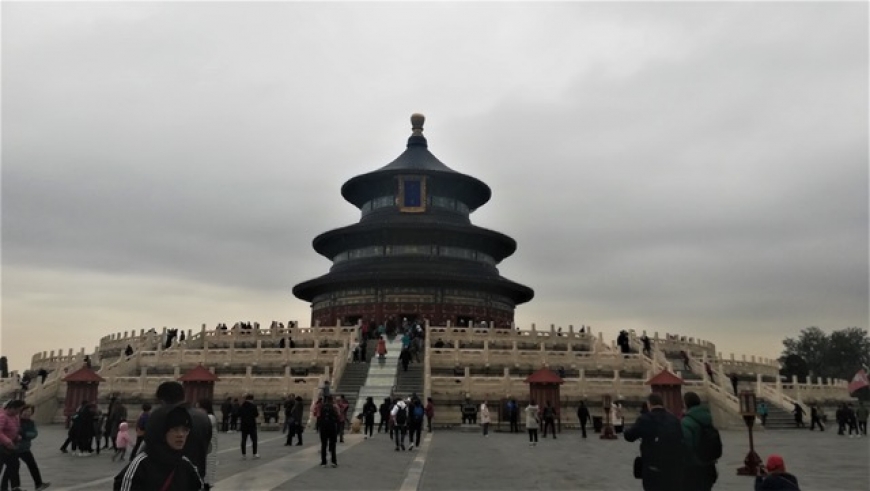
The most up-to-date phenomenon - if in today's world anything older than five minutes can be considered topical - is the TikTok platform, or rather its Chinese version of Douyin. Under-14s in Bosnia and Herzegovina who inevitably have smartphones as well as influencers and trend-followers should not be told what or how the platform works - and the writer of this line was aware of its appearance, but not the scale. In the fall of 2016, Douyin was launched for the Chinese market, and one year later, TikTok. The app allows users to create short videos of three to 15 seconds, with lip sync, as well as short videos of three to 60 seconds. Nothing wise? Well, that app breaks all records in the social networking world: In its two years of existence, TikTok has reached one billion active users, a number that has taken Facebook ten years, and has already surpassed "classic" networks such as Instagram, Twitter, Snapchat. The fact that the world's largest media, such as, for example, the Washington Post, a list whose journalists Woodward and Bernstein uncovered the Watergate affair and led to President Nixon's resignation, have long had their own TikTok profile, count their followers and their reactions in the devil. the sight of the heart. The aforementioned Post has over 300,000 followers and over 15 million likes. That anyone who has ever been charged a fee in journalism should think deeply, deeply.
It is evident that 70 years since its founding and 41 years since the beginning of reforms and opening, China has been making unstoppable progress in almost all segments of society. It is not a China society without problems, but I do not know from what perspective and from what point of the globe a critical finger can be directed against China. Five thousand years of civilization and a handful of history have made China as it is today, and its achievements can either be respected or criticized from ideological discourse. The biggest mistake would be to ignore or even negate China. And it is best with your own eyes to come, see and try to understand why China has already deepened into the 21st century.
In brief about the hosts
The Chinese International Publishing Group (CIPG) is the oldest and largest professional international organization in China. CIPG operates 21 departments and 26 representative offices in 14 countries and regions including those in the United States, United Kingdom, Germany, France, Russia, South Africa, Japan, etc. CIPG publishes more than 4,000 books and other publications in more than 40 languages annually, as well as 34 multilingual periodicals in 14 languages. Their publications have been distributed in more than 180 countries. The most famous work published by CIPG through one of its foreign language publishing houses in recent years is certainly "Governance of China", a book that summarizes in two volumes the key thoughts and ideas of the Secretary General of the Communist Party of China and President of the People's Republic of China Xi Jinping. A person interested in learning about modern China, especially in political and philosophical terms, will find them sublimated here through thematic chapters through the words of the first man of the party and state.

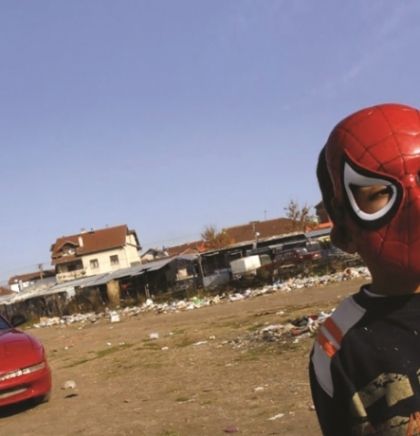


Comments: 0
NAPOMENA: Komentari odražavaju stavove njihovih autora, a ne nužno i stavove redakcije BHPutovanja.ba. Molimo korisnike da se suzdrže od vrijeđanja, psovanja i vulgarnog izražavanja. Redakcija zadržava pravo da obriše komentar bez najave i objašnjenja. Zbog velikog broja komentara redakcija nije dužna obrisati sve komentare koji krše pravila. Kao čitalac također prihvatate mogućnost da među komentarima mogu biti pronađeni sadržaji koji mogu biti u suprotnosti sa vašim vjerskim, moralnim i drugim načelima i uvjerenjima.
You have to sign in to leave comment.